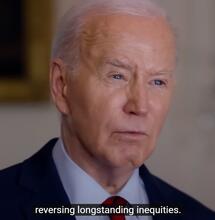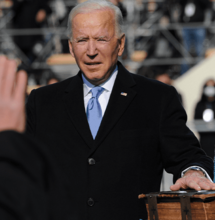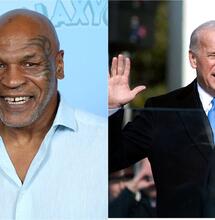Health Department Recommends Marijuana Reschedule

The U.S. Department of Health and Human Services (HHS) made an official announcement where it recommends marijuana to be moved from Schedule I to Schedule III under federal law. The recommendation comes after the top health agency conducted a scientific review into cannabis under a directive from President Joe Biden last year. The HHS recommendation represents the most significant marijuana policy development in over 50 years.
The top federal health agency has made the recommendation to DEA. After completing its review, HHS is basically telling the Drug Enforcement Administration that it believes marijuana should be placed in Schedule III of the Controlled Substances Act (CSA) alongside substances such as ketamine and testosterone.
The HHS has taken nearly 11 months to complete its scientific review. An agency spokesperson confirmed on Wednesday, Aug. 30, that DEA has received a letter from the health department providing its findings and recommendation on marijuana scheduling, as requested by President Biden last October.
The recommendation is not binding, meaning, the DEA still has to initiate its own process before it brings the matter to a conclusion. However, for many, the scientific review complete and the growing political support for cannabis reform is enough to think that DEA will come to a positive final decision.
Four-Twenty Timed Announcement
The news on the Schedule III recommendation was shared during an hour symbolic of cannabis. “I can now share that, following the data and science, [HHS] has responded to [President Biden’s] directive to me for the Department to provide a scheduling recommendation for marijuana to the DEA. We’ve worked to ensure that a scientific evaluation be completed and shared expeditiously,” Secretary Xavier Becerra wrote on X (previously Twitter), at exactly 4:20 on Wednesday, Aug. 30.
That would not be the first time that Becerra’s team uses the symbolic timing to talk about marijuana policy matters. The Biden cabinet official has proceeded with cannabis-related updates on social media at four-twenty sharp in previous occasions as well.
What Could a Schedule III Status Bring?
Under Schedule I, marijuana is classified alongside hard drugs such as heroin, LSD and crack cocaine, all associated with high risk of abuse. Under Schedule III, it will be classified next to substances such as Tylenol with codeine, ketamine, anabolic steroids, and testosterone.
Even as a Schedule III drug, marijuana would continue to be federally prohibited. Still, the implications from rescheduling would be major. One of the gains is that the move would open up more opportunities for scientific research on marijuana. Another is that rescheduling would dramatically reduce the steep federal taxes currently paid by U.S. marijuana companies, and which some states are trying to remove with state-level measures.
In particular, with Schedule III status in place, state legal cannabis businesses will no longer be subject to paying the 280E tax provision, and they can deduct their business expenses just like all other small businesses.
At the political level, moving marijuana lower on the list of Controlled Substances, would signal a significant accomplishment for President Biden. The president would be able to say that his push for an administrative review has been successful. If it results in rescheduling from the strictest classification possible, it would mark the end of an era of how marijuana has been viewed at the federal level; it was the federal government after all that placed marijuana high on that list more than 50 years ago as it launched the war on drugs.
The HHS recommendation could further propel congressional action. Lawmakers are due to review again federal cannabis laws in the coming months, more specifically banking reform bills, and the Schedule III recommendation could be used as an argument to address the urgency of pushing forward that new legislation.

What Were the Reactions?
The HHS recommendation immediately galvanized everyone. Notably, marijuana stocks of major U.S. companies experienced an approximate 20% boost following Wednesday’s announcement.
At the same time, there were mixed reactions from high-profile politicians and advocates, as many hoped that the review process would go farther and that the HHS recommendation would stand for descheduling. Or that marijuana would be completely removed from the CSA.
The HHS has been applauded for proposing a reform that could significantly advance scientific research in cannabis, and provide much-needed tax relief for operators. But from one side people are worried that Schedule III would not solve the main problem, that marijuana will remain federally illegal. In the eyes of the government, marijuana will still not be viewed the same as say tobacco or alcohol.
“HHS has done the right thing and DEA should now quickly follow through on this important step to greatly reduce the harm caused by draconian marijuana laws,” were the words of Congressional lawmaker, Senate Majority Leader Chuck Schumer. “While this is a step forward, there is still much more that needs to be done legislatively to end the federal prohibition on cannabis and roll back the War on Drugs. I am committed to continuing to work in Congress to pass important marijuana legislation and criminal justice reform,” he said.
“Ultimately, I believe that cannabis should be descheduled with strong federal regulations put in place to protect public health and safety—that’s why I introduced the Cannabis Administration and Opportunity Act with Leader Schumer and Senator Booker,” said Senate Finance Committee Chairman Ron Wyden. “However, the recommendation of HHS to reschedule cannabis as a Schedule III drug is not inconsequential.”
Wyden added: “If HHS’s recommendation is ultimately implemented, it will be a historic step for a nation whose cannabis policies have been out of touch with reality.”
Rep. Earl Blumenauer, co-chair of the Congressional Cannabis Caucus as well, agreed that “this is a step in the right direction,” but added that “it is not sufficient.” He said: “I hope it is followed by more significant reforms. This is long overdue.”
Another fear is that a Schedule III reclassification could have a negative impact on state-level markets, giving the FDA greater controls over cannabis regulation.
“The goal of federal cannabis policy reform ought to be to address the existing, untenable chasm between federal marijuana policy and the cannabis laws of the majority of U.S. states,” said NORML Deputy Director Paul Armentano in a statement for Marijuana Moment.
“Rescheduling the cannabis plant to Schedule III of the US Controlled Substance Act fails to adequately address this conflict as existing state legalization laws—both adult use and medical—will continue to be in conflict with federal regulations, thereby perpetuating the existing divide between state and federal marijuana policies,” he said.
Also read on Soft Secrets:
- Biden Signs First Reform Cannabis Bill


















